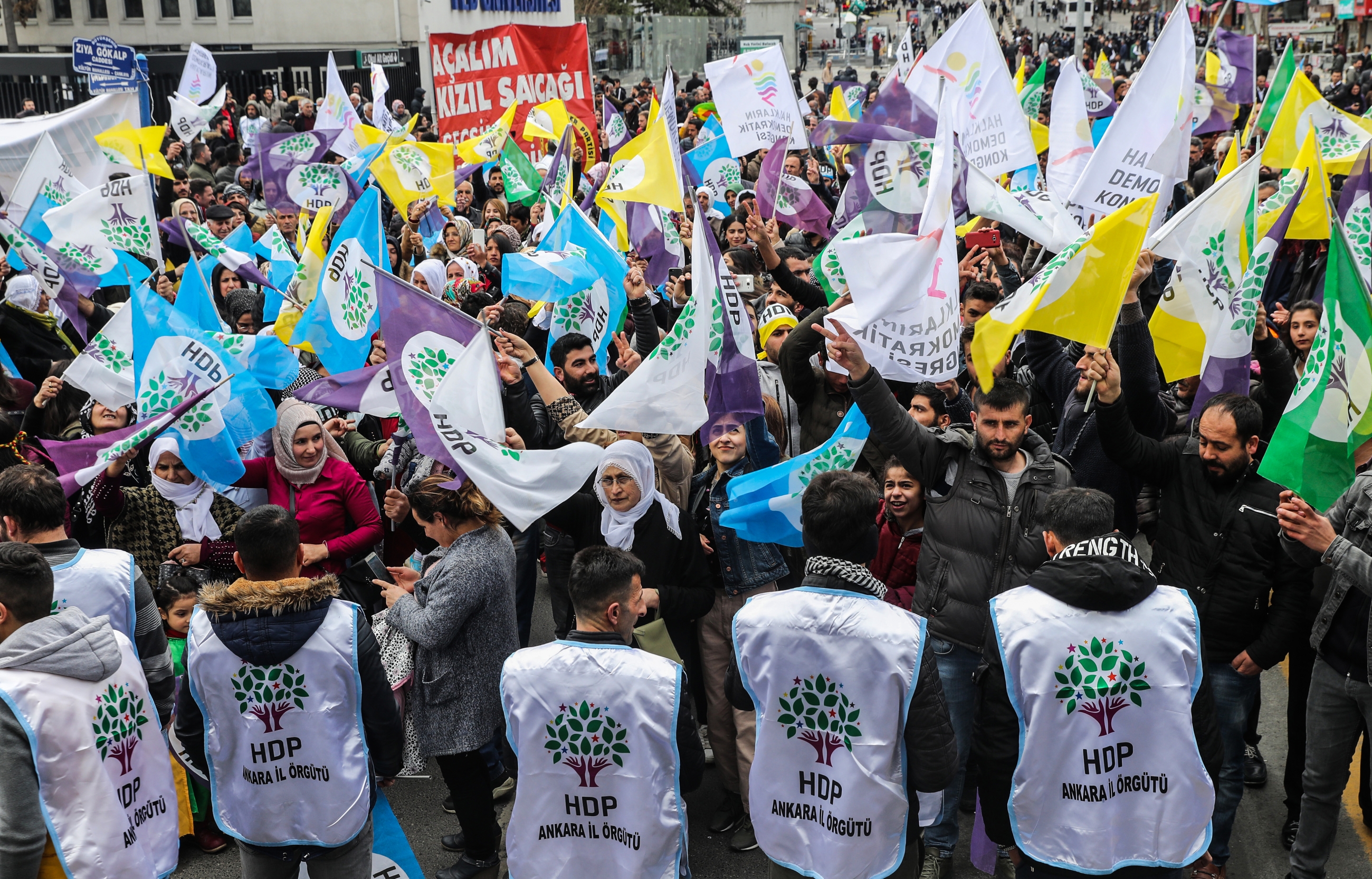'Unconstitutional': Turkey's election board denies office to HDP mayor-elects

Turkey’s top legal body for election affairs has refused to grant mandates to pro-Kurdish mayor-elects who were expelled from service under the state of emergency.
The Supreme Election Board (YSK) decided late on Wednesday that the district level mayor-elects - all members of the pro-Kurdish People’s Democracy Party (HDP) - weren’t qualified for office and runner-up candidates were eligible to become new mayors.
The decision qualifies ruling Justice and Development Party (AKP) members to take the mandates won in the 31 March local election, in six district municipalities in Erzurum, Van and Diyarbakir, and two town municipalities in Kars and Siirt.
The HDP branded the decision a conspiracy by the AKP and nationalist allies to avoid losing key seats in the east of Turkey.
"This step taken by the YSK is part of a deliberate political conspiracy, nothing else," spokesman Saruhan Oluc said.
Stay informed with MEE's newsletters
Sign up to get the latest alerts, insights and analysis, starting with Turkey Unpacked
Zeyyat Ceylan, co-mayor-elect for Diyarbakir’s Baglar municipality and a former teacher expelled from service by presidential decree, said the decision was illegal.
“I filed my application for candidacy on February 19. The election board had 13 days to conduct a background check on me and they said I was qualified to run. Eight days after the election I won with 116,000 votes," she said.
"They now say ‘we cannot give your mandate'".
The board’s decision follows a bitter election struggle between the HDP and AKP, with the government launching terrorism investigations against the HDP. The pro-Kurdish party increased its vote share in major districts in the south-east during the local election.
Legal experts have said the decision is unconstitutional.
Osman Can, a law professor and former member of the Council of Europe's Venice Commission, said presidential decrees were only valid until the close of the state of emergency, which the Turkish government ended last July.
'This step taken by the YSK is part of a deliberate political conspiracy, nothing else'
Sarahun Oluc,
HDP spokesperson
“Withholding mandates on the grounds of presidential decrees is irreconcilable with the constitution,” he tweeted.
Adem Sozuer, a law professor and one of the architects of the new Turkish penal code, agreed that the election board, which consists of high court judges, had exceeded its power.
“The election board violated a constitutional right, contradicted its own jurisprudence and harmed its credibilitiy. Shame," he said.
The refusal of mandates is also seen as contradictory. Last year, mandates were granted to eight MP-elects who had been expelled from public employment under the state of emergency.
Because the Turkish constitution designates the election board as the final arbiter on election issues, there is no option for the HDP to appeal the decision using conventional legal avenues.
On Thursday, the party announced it would file an application to renew elections in municipalities where mayor-elects have been denied their mandates.
“We will file complaints to [the] board of judges and prosecutors about the members of the election board," HDP MP Mithat Sancar said, in a statement made with other senior officials outside the YSK office in Ankara.
"They assume the powers of the National Assembly. They made misconducts.”
More than 140,000 people were sacked or suspended from public positions following a 2016 attempt to unseat the country's strongman president, Recep Tayyip Erdogan.
After the attempted coup, the government installed local administrators to replace pro-Kurdish mayors in 95 of the 102 Turkish municipalities they held.
Middle East Eye delivers independent and unrivalled coverage and analysis of the Middle East, North Africa and beyond. To learn more about republishing this content and the associated fees, please fill out this form. More about MEE can be found here.





